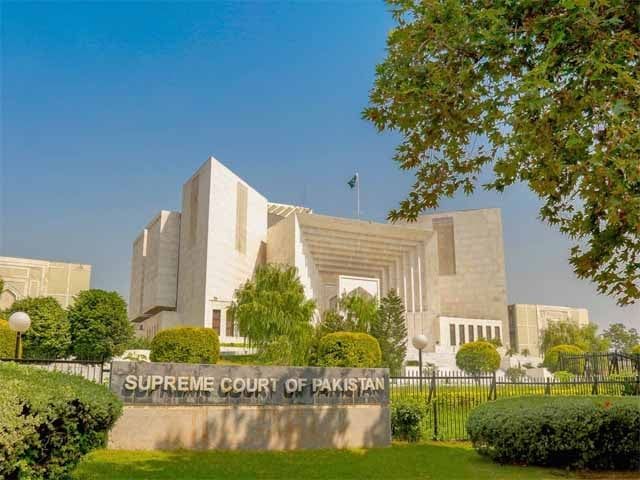The Supreme Court of Pakistan, led by Chief Justice Qazi Faez Isa, is set to convene on October 31 to address the federal government’s intra-court appeal regarding the majority judgment that declared amendments to the National Accountability Ordinance (NAO) unconstitutional. The bench includes Justices Aminuddin Khan, Jamal Khan Mandokhail, Athar Minallah, and Syed Hasan Azhar Rizvi.
The appeal, filed under the Supreme Court (Practice and Procedure) Act, 2023, challenges the striking down of changes to the NAO introduced through the National Accountability (Second Amendment) Act, 2022. This marks the first appeal filed under Section 5 of the Act, and the Supreme Court has issued notices to the relevant lawyers involved in the case.
A three-member committee consisting of Chief Justice Isa, Justice Sardar Tariq Masood, and Justice Ijazul Ahsan approved the hearing of this intra-court appeal. Under the Supreme Court (Practice and Procedure) Act, appeals must be scheduled for a hearing within 14 days.
The federal government contested the Supreme Court’s decision to nullify the NAB law amendments on October 17. Previously, a three-member Supreme Court bench, headed by former Chief Justice Umar Ata Bandial and including Justices Ahsan and Syed Mansoor Ali Shah, conducted a lengthy one-and-a-half-year hearing on the NAB law amendments.
In June 2022, PTI Chairman Imran Khan challenged the amendments in the Supreme Court, expressing concerns that these changes might allow public officeholders to evade accountability for white-collar crimes. He filed a constitutional petition under Article 184(3) of the Constitution.
On September 15, in a 2-1 verdict, the Supreme Court ordered the reinstatement of corruption cases against public office holders that had been closed following the amendments to the country’s accountability law. The majority verdict, issued by then-Chief Justice Bandial and Justice Ahsan, declared the PTI chief’s petition maintainable, while Justice Mansoor disagreed.
In addition to declaring the amendments null and void, the Supreme Court mandated the reopening of all corruption cases worth less than Rs500 million that were previously closed against political leaders and public office holders.
Separately, the three-member committee led by the Chief Justice, under the Supreme Court (Practice and Procedure) Act, approved a seven-point policy outlining which cases would be given priority. This prioritization includes cases that require a speedy decision due to legal obligations, tax and election dispute cases, pre-arrest and post-arrest bail cases, and criminal cases with sentences of up to 10 years.
The Supreme Court is actively working to reduce the number of pending cases and has managed to dispose of 2,440 cases in just 20 working days in October. During this period, the court registered 1,305 new cases.


